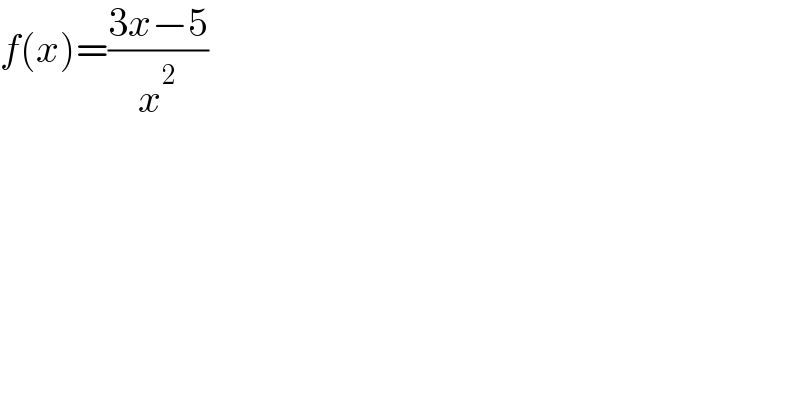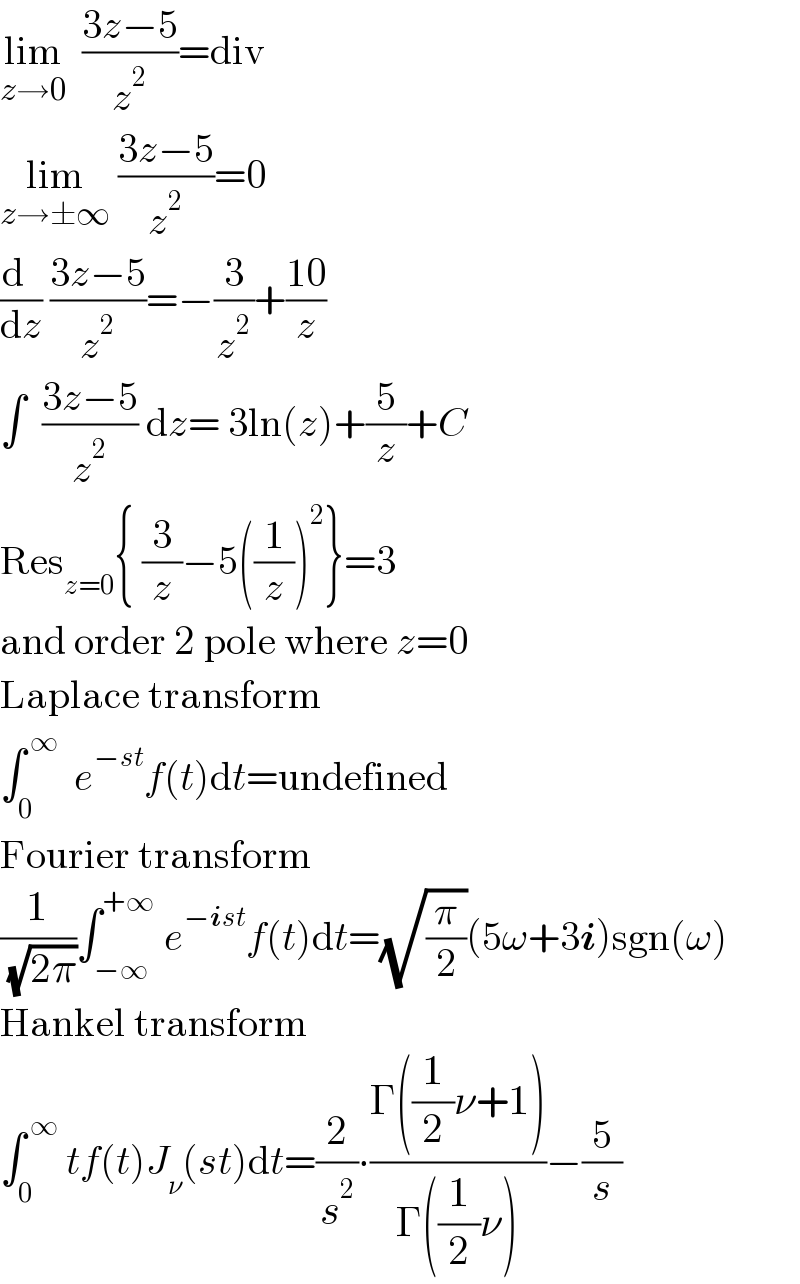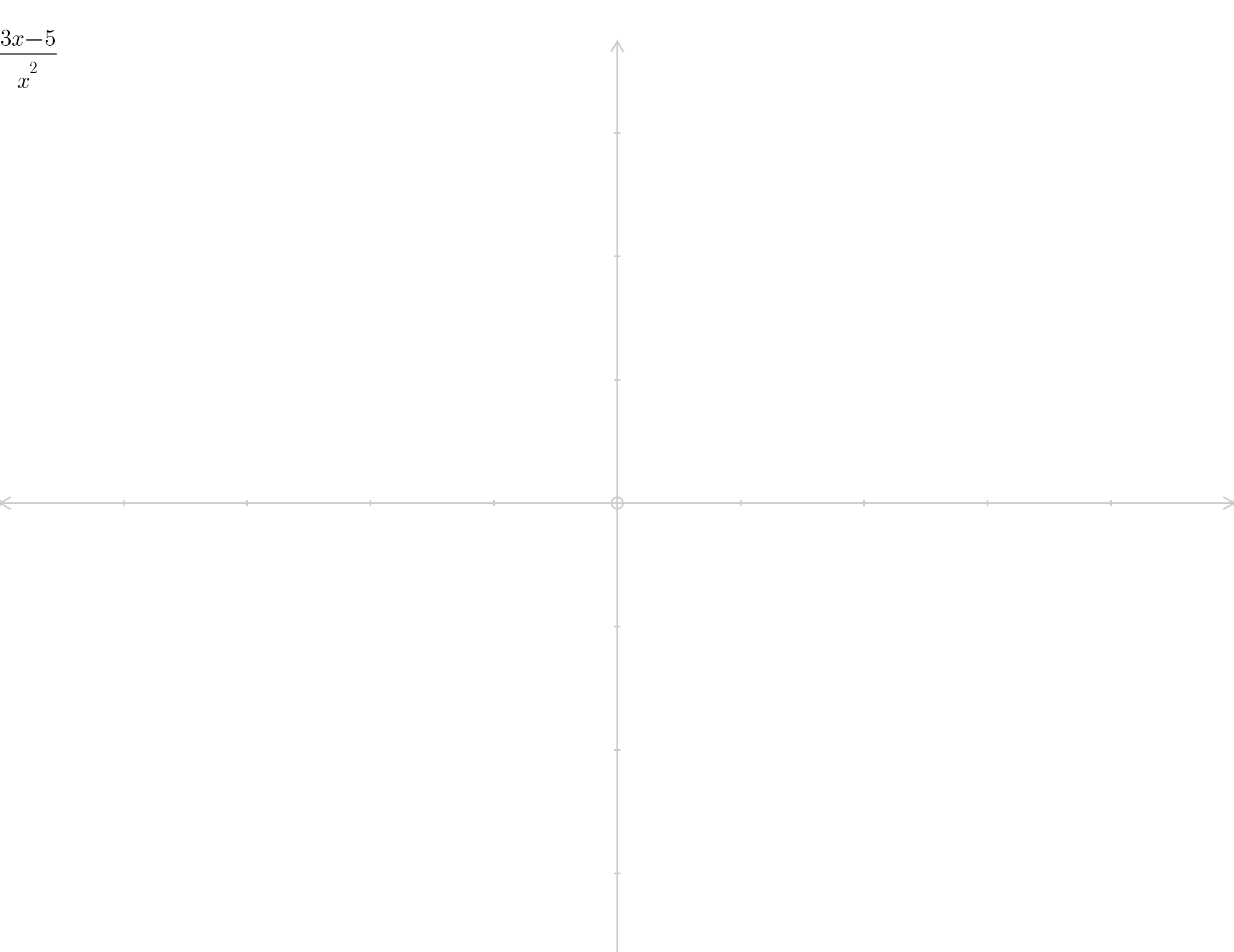
Question Number 214116 by Ayya last updated on 28/Nov/24

$${f}\left({x}\right)=\frac{\mathrm{3}{x}−\mathrm{5}}{{x}^{\mathrm{2}} } \\ $$
Answered by deleted31 last updated on 28/Nov/24

$$\underset{{z}\rightarrow\mathrm{0}} {\mathrm{lim}}\:\:\frac{\mathrm{3}{z}−\mathrm{5}}{{z}^{\mathrm{2}} }=\mathrm{div} \\ $$$$\underset{{z}\rightarrow\pm\infty} {\mathrm{lim}}\:\frac{\mathrm{3}{z}−\mathrm{5}}{{z}^{\mathrm{2}} }=\mathrm{0} \\ $$$$\frac{\mathrm{d}\:\:}{\mathrm{d}{z}}\:\frac{\mathrm{3}{z}−\mathrm{5}}{{z}^{\mathrm{2}} }=−\frac{\mathrm{3}}{{z}^{\mathrm{2}} }+\frac{\mathrm{10}}{{z}} \\ $$$$\int\:\:\frac{\mathrm{3}{z}−\mathrm{5}}{{z}^{\mathrm{2}} }\:\mathrm{d}{z}=\:\mathrm{3ln}\left({z}\right)+\frac{\mathrm{5}}{{z}}+{C} \\ $$$$\mathrm{Res}_{{z}=\mathrm{0}} \left\{\:\frac{\mathrm{3}}{{z}}−\mathrm{5}\left(\frac{\mathrm{1}}{{z}}\right)^{\mathrm{2}} \right\}=\mathrm{3}\: \\ $$$$\mathrm{and}\:\mathrm{order}\:\mathrm{2}\:\mathrm{pole}\:\mathrm{where}\:{z}=\mathrm{0} \\ $$$$\mathrm{Laplace}\:\mathrm{transform} \\ $$$$\int_{\mathrm{0}} ^{\:\infty} \:\:{e}^{−{st}} {f}\left({t}\right)\mathrm{d}{t}=\mathrm{undefined} \\ $$$$\mathrm{Fourier}\:\mathrm{transform} \\ $$$$\frac{\mathrm{1}}{\:\sqrt{\mathrm{2}\pi}}\int_{−\infty} ^{+\infty} \:{e}^{−\boldsymbol{{i}}{st}} {f}\left({t}\right)\mathrm{d}{t}=\sqrt{\frac{\pi}{\mathrm{2}}}\left(\mathrm{5}\omega+\mathrm{3}\boldsymbol{{i}}\right)\mathrm{sgn}\left(\omega\right) \\ $$$$\mathrm{Hankel}\:\mathrm{transform} \\ $$$$\int_{\mathrm{0}} ^{\:\infty} \:{tf}\left({t}\right){J}_{\nu} \left({st}\right)\mathrm{d}{t}=\frac{\mathrm{2}}{{s}^{\mathrm{2}} }\centerdot\frac{\Gamma\left(\frac{\mathrm{1}}{\mathrm{2}}\nu+\mathrm{1}\right)}{\Gamma\left(\frac{\mathrm{1}}{\mathrm{2}}\nu\right)}−\frac{\mathrm{5}}{{s}} \\ $$
Answered by MathematicalUser2357 last updated on 20/Dec/24

$$ \\ $$$$ \\ $$
